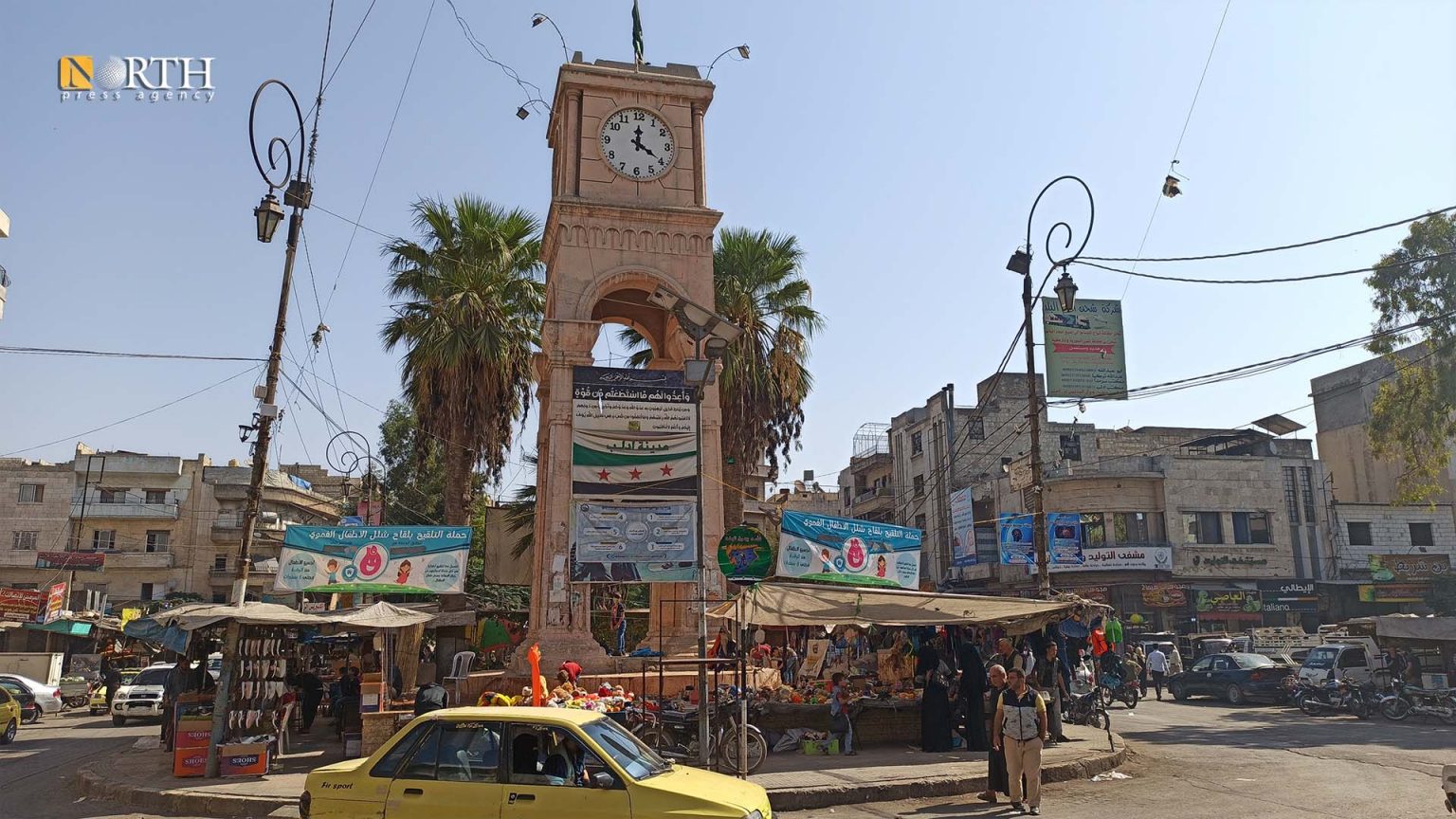IDLIB, Syria (North Press) – Adham Dashrani, a media activist in the city of Idlib, northwest Syria, did not know that his criticism of high fuel prices on social media would lead to his arrest and imprisonment by Hayat Tahrir al-Sham (HTS, formerly al-Nusra Front).
The young man was summoned by the Information Directorate of the Salvation Government (the civil wing of HTS), and within two days of his arrest was subjected to psychological and physical abuse, according to those close to him.
Last week, Dasharni published a post on his Facebook in which he held the Salvation Government responsible for the high fuel prices, as it has only provided the residents within its areas of influence with taxes and royalties.
Repeated arrests
A day after his post, he was summoned to the Salvation Government Media Directorate immediately, and threatened with unknown consequences if he did not comply.
Upon his arrival, the media activist was arrested on charges of inciting sedition and incitement against the Salvation Government, to be imprisoned for 48 hours as a warning.
Recently HTS was forced to release media activist Nour al-Shilo after more than four months of detention in HTS prisons on charges and several crimes that activists described as fabricated, after local and international media pressure, which demanded the commission reveal the fate of the journalist.
HTS, through the Salvation Government, pursues policies of intimidation against journalists working in its areas of control by restricting them and controlling their work in accordance with its policy, according to journalists. HTS recently issued a decision banning the journalist from practicing his work except by virtue of a press card that can be obtained from its Information Directorate, and which is given after a security study.
Journalists wishing to obtain this card are subject to many conditions and questions related to the privacy of their work, most notably the disclosure of the journalist’s real name, pseudonym, media organization to which they belong, address, and other personal information. If the information cannot be verified by a specialized committee, the journalist cannot work in Idlib, according to local journalists.
Lindsey Snell, an American journalist covering Syria and the Middle East, previously told North Press that HTS “routinely arrests journalists in their areas. They’re held in terrible conditions in HTS prisons…some of them for more than a year. And HTS instituted a crazy accreditation process to keep tighter control over what journalists do in their territory. I’ve seen some of the press cards the “salvation government” has issued, and they’re valid for 6 months or less.”
Equipment confiscation
Early this month, an HTS security patrol intercepted Ahmed al-Radwan (pseudonym), a journalist in the city of Sarmada, north of Idlib, when he was practicing his work in a market in the city.
Security forces confiscated his equipment after learning that he was not working for HTS media outlets.
On June 9, 2020, HTS members attacked a number of journalists in the city of Ariha while they were covering the conduct of a joint Russian-Turkish patrol on the M4 Highway south of Idlib.
On July 7, 2020, a security force arrested a media activist and his brother from the center of Darkush, northwest of Idlib, over a quarrel, which activists said had been started by HTS members, without explaining the location and reasons for the arrest. This was preceded by the Salvation Government’s summoning of a journalist working in Idlib after he published a photo of his assault by HTS members.
August 2020 also witnessed the arrest and imprisonment of well-known American journalist Bilal Abdul Kareem, the brains behind the once pro-HTS On the Ground News (OGN) network. Abdul Kareem was arrested after interviewing the wife of a detained journalist and openly discussing the torture of a British aid worker detained by the group, according to a local journalist in Idlib who wished to remain anonymous. He was released this year after pledging to not publish anti-HTS content or practice journalism for six months.
Gender-based harassment
HTS also reportedly harasses female journalists, forbidding them from being present in environments with male journalists and hurling various accusations at them.
Safa’a Rastan (a pseudonym), a media activist in Idlib, was nearly arrested in late 2020 by a women’s patrol affiliated with the hizba (Islamic morality police) while she was covering a civil event attended by male journalists.
Safa’a says that she argued with members of the women’s patrol, as one of them handcuffed her and tried to arrest her. Other media activists finally intervened to prevent her arrest, and the entire event was cancelled to secure her release. had it not been for the mediation of other media activists to prevent her arrest.

